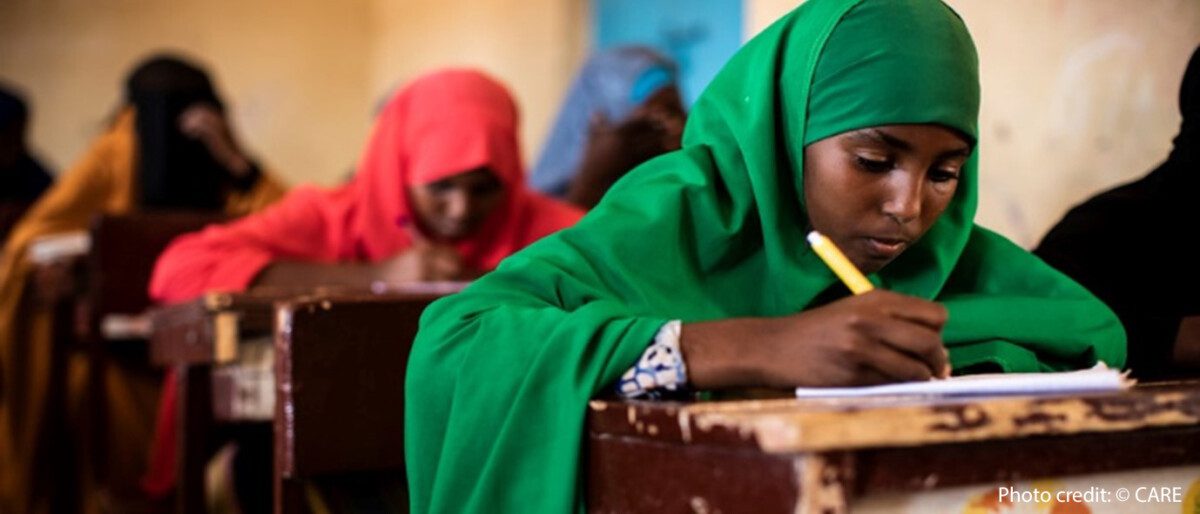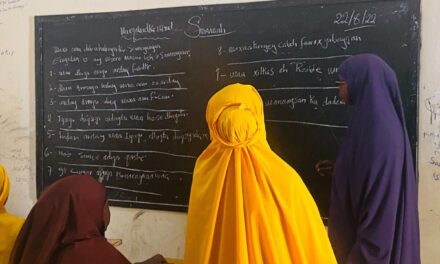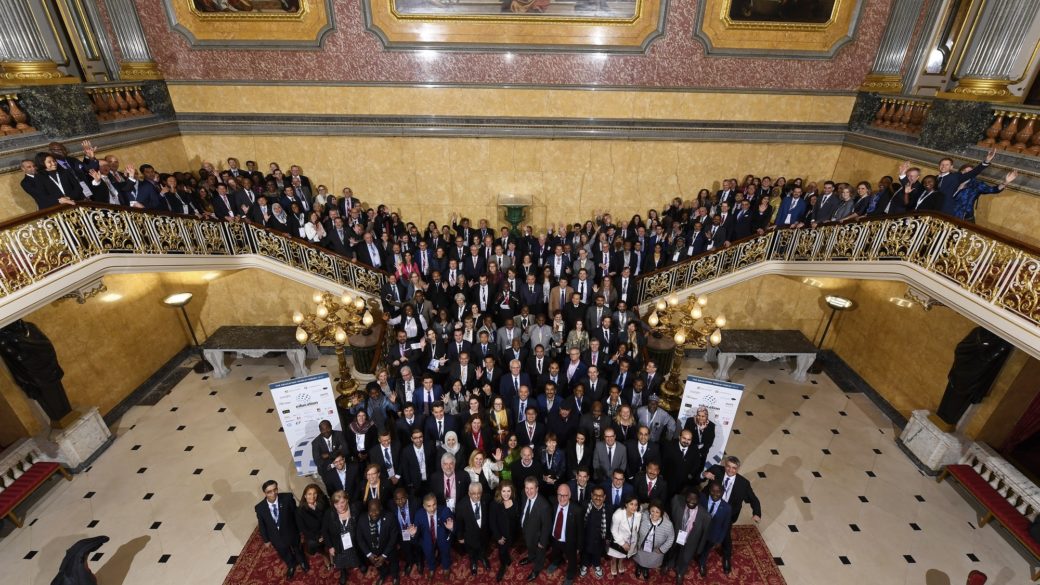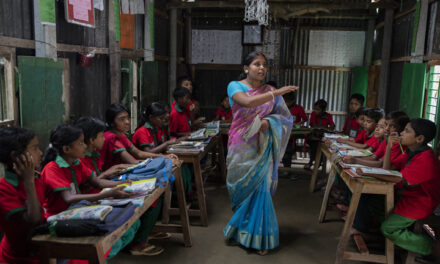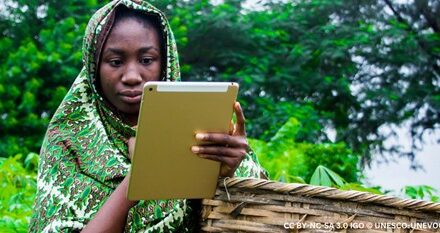This blog was written by Ebyan Mahat Sabul, CARE International Somalia, and based on a presentation at the September 2023 UKFIET conference.
While we find it perfectly normal to have our social networks and talk with our friends, family, and community, does it occur to you that there is that one person somewhere who does not have these advantages in life?
Yurup (not her real name) says, “Now I have integrated with the community, I have got to know new students and teachers, and I have a good relationship with the students, who have given me more knowledge and confidence that I did not have before.” Yurup is a teenage girl living with a disability in Mogadishu. She takes part in the Adolescent Girls’ Education in Somalia (AGES), a large project funded by USAID and FCDO, which supports over 76,000 former out-of-school girls aged 10-25 years to attend formal, accelerated, or non-formal education, including special needs education classes.
An estimated 5% of Somalia’s population have a physical, cognitive, or mental health disability, based on household self-reported data (Somalia Health and Demographic Survey, 2020). The actual prevalence may be under-reported, as sampled studies with schoolchildren have shown higher proportions ranging between 8-10%. Negative social norms and beliefs result in discrimination, harassment, and violence against people with disabilities in Somalia, and the limited knowledge of disability and awareness of rights among parents and teachers contribute to restrict access to education for children with disabilities. A national learning assessment conducted in 2021 indicated that children with disabilities had significantly lower literacy and numeracy scores in relation to their peers, reflecting a pattern of exclusion not only in access to education but also in classroom practices (Ministry of Education, Culture and Higher Education, ‘Study on Learning Outcomes for Students in Grades 1-4’, August 2021).
When Yurup talks, one cannot help but reflect on policy and evidence to try to better understand her statement and put it into perspective.
Now I have integrated with the community: The government of Somalia has intentionally set out to work with its partners and community structures to Increase access to education, resulting in a Primary Gross Enrolment Rate increase from 19% (2019) to 31% (2022) and a 66% increase in Special Needs Education enrolment. The government has prioritised inclusion in the Education Sector Strategic Plan of 2022-2026, seeking to increase access to education for children with disabilities. How are those policies translating on the ground?
The AGES project has formed Disability Advisory Groups/ DAGs, which are community-based structures to lead on frontline advocacy and promotion on disability inclusion. The DAGs’ sensitisation actions contributed to shift social norms about disability among people living within the AGES girls’ communities. When Yurup says she has integrated in the community, this reflects, in part, the results of the work done by the DAGs.
By participating in activities within the school, she can now expand her community beyond the family unit and broaden the scope of her social interactions. Using a girl-centred approach, AGES supports students to participate in Girls’ Empowerment Forums, where participants have access to mentorship, psychosocial first aid, and opportunities to engage in civic action. As of November 2022, 82% of the Girls’ Empowerment Forums were conducting youth-led action to increase access to education, reduce early marriage, and address other critical issues affecting girls. Overall, 98% of the Forums include girls with disabilities as participants.
Through the Girls’ Empowerment Forums, Yurup can have conversations with her peers and share her experiences, plan for her life, and raise her voice to advocate for change in her community. She talks with other girls living with disabilities, helping them to envision going to school. It is no wonder that she says, “…and I have a good relationship with the students.”
Muna, another girl living with disabilities in Kismayu, says, “The relationship between me and other girls is very good because they assist me where I need help and a good example is that we play together as a group during break time and they don’t discriminate me, they show me love and respect.”
“I have got to know new students and teachers”: AGES worked with state Ministries of Education to set up a robust teacher support system which includes coaching on disability inclusion. Yurup’s teachers have been trained to meet her education needs and to support her to catch up with her peers in terms of literacy and numeracy.
“Have given me more knowledge and confidence that I did not have before”: Youth-led activism has contributed to build girls’ self-confidence and ability to speak out about safeguarding issues. Yurup’s teachers and female mentors are trained on psychosocial first aid to support students facing safeguarding issues, helping them in the fragile Somali context. AGES has prioritised safeguarding in its interventions, continuously reviewing girls’ well-being in survey data and using the results to make adaptations. AGES built a robust school-based ‘Feedback, Complaints, and Response Mechanism’; set up referral networks; and trained beacon teachers in silent mentorship skills, acknowledging that girls may be suffering in silence and unable to report issues.
Yurup’s narrative brings up the importance of integrated approaches to build skills and conditions for girls with disabilities to thrive in a fragile context. Moving beyond simple enrolment, this requires interventions to facilitate deep shifts in gender and social norms, leveraging youth activism, peer networks, and teachers’ ability to serve as mentors. Above all, it requires interventions to listen to girls’ voices, and support them to build healthy spaces and connections with others, creating pathways for social cohesion and change.

